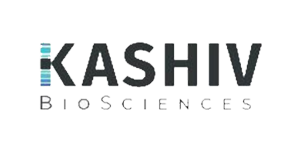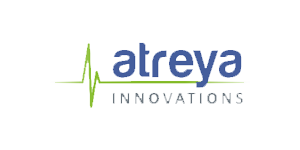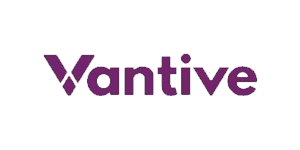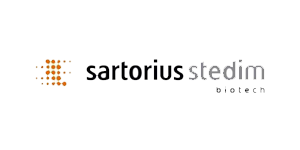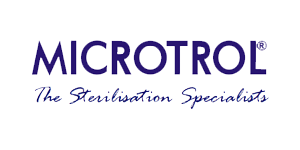
Cholera Outbreak in Bangalore: PGs on High Alert After Cases Detected
Cholera Outbreak in Bangalore: Introduction
In recent weeks, Bangalore, the bustling metropolis known for its tech hubs and cosmopolitan diversity, has been confronted with a worrying surge in cholera cases. This outbreak has heightened concerns, particularly among residents of Paying Guest (PG) accommodations who are now on high alert following confirmed cases within their communities.
Understanding Cholera
Cholera, caused by the bacterium Vibrio cholerae, spreads through contaminated water and food. The disease manifests with severe diarrhea and vomiting, leading to rapid dehydration and, if left untreated, can be fatal. Its rapid transmission underscores the importance of swift intervention and preventive measures.
Impact on PG Residents
For many young professionals and students living in PG accommodations, the outbreak has created a sense of vulnerability. Shared living spaces and facilities increase the risk of exposure, necessitating heightened awareness and proactive measures to contain the spread.
Precautionary Measures
Authorities have swiftly responded by issuing guidelines and conducting awareness campaigns. Residents are urged to:
- Ensure Water Quality:Use only clean, treated water for drinking and cooking purposes.
- Practice Good Hygiene: Maintain regular handwashing with soap and water, especially before eating.
- Monitor Symptoms: Stay vigilant for symptoms like severe diarrhea and seek medical attention promptly if symptoms appear.
Community Response
Efforts are underway to bolster sanitation and hygiene in affected areas. Health officials are collaborating with landlords and residents to implement preventive measures and provide necessary support.
Community engagement plays a pivotal role in stemming the outbreak’s spread and safeguarding public health.
What should you do if living in a PG
Maintain Cleanliness and Hygiene
- Personal Hygiene:Practice good personal hygiene habits such as regular handwashing, keeping your living space clean, and disposing of waste properly.
- Shared Spaces: Respect common areas by cleaning up after yourself and following any cleanliness guidelines set by the PG management.
- Water and Food Safety: Ensure that drinking water is from a safe source (e.g., filtered or bottled) and handle food properly to prevent foodborne illnesses.
Respect House Rules and Residents
- Follow The Rules: Adhere to the PG’s rules and regulations regarding guidelines on food and water safety.
- Consider Others: Be considerate of your roommates and neighbors. Avoid activities that may lead to mass contamination.
Communicate with the PG Management
- Report Issues: Promptly report any maintenance issues or concerns to the PG owner or manager, such as plumbing problems, electrical issues, or drinking water concerns.
- Seek Assistance: If you have questions or need assistance, don’t hesitate to reach out to the PG management. They are there to help ensure your comfort and safety.
Looking Ahead
While confronting a cholera outbreak is daunting, Bangalore’s resilience and community spirit are formidable assets. By adhering to recommended precautions and working collectively, we can mitigate the impact of this outbreak and emerge stronger.
In a nutshell , staying informed and taking proactive steps are our best defenses against cholera. Let’s prioritize health and safety as we scrape through these challenging times, hoping for a safer and healthier Bangalore for all.
Cholera 101 – FAQ
What is cholera?
Cholera is an infectious disease caused by the bacterium Vibrio cholerae. It primarily spreads through contaminated water or food and can cause severe diarrhea and dehydration.
How does cholera spread?
Cholera spreads through the consumption of contaminated water or food, particularly in areas with poor sanitation and hygiene practices. The bacterium can also be transmitted through direct contact with infected feces.
What are the symptoms of cholera?
The main symptoms of cholera include profuse watery diarrhea, vomiting, and leg cramps. In severe cases, dehydration can lead to rapid heart rate, loss of skin elasticity, and even death if left untreated.
How quickly do cholera symptoms appear after infection?
Cholera symptoms typically appear within a few hours to five days after infection. The onset of symptoms can be sudden and severe.
Who is at risk of cholera?
People living in areas with poor sanitation and limited access to clean water are at higher risk of cholera. Travelers to regions where cholera is endemic or during outbreaks are also vulnerable.
How is cholera diagnosed?
Cholera is diagnosed based on clinical symptoms, history of exposure, and laboratory tests, such as stool culture or rapid diagnostic tests.
How is cholera treated?
Cholera is treated primarily with rehydration therapy, which involves oral or intravenous fluids to replace lost fluids and electrolytes. Antibiotics may also be prescribed for severe cases.
How can cholera be prevented?
Preventive measures for cholera include:
– Drinking only safe water (boiled, bottled, or treated).
– Eating thoroughly cooked food and avoiding raw or undercooked seafood.
– Practicing good hygiene, including frequent handwashing with soap and water.
– Getting vaccinated against cholera if traveling to high-risk areas.
Is cholera a fatal disease?
Cholera can be fatal if not promptly treated, especially in severe cases where dehydration is rapid and profound. However, with timely intervention, including rehydration and appropriate medical care, most cases of cholera can be successfully treated.
What should I do if I suspect cholera?
If you suspect you or someone else has cholera, seek medical attention immediately. Prompt treatment with rehydration therapy can significantly reduce the risk of complications and improve outcomes.
Note– These FAQs provide basic information about cholera. For specific concerns or more detailed information, consult healthcare professionals or relevant authorities. Staying informed and taking preventive measures are key to reducing the risk of cholera infection and its impact on communities.
Water Testing FAQ’s
How can water testing solutions help?
Water testing solutions play a non negotiable role in ensuring the safety, quality, and compliance of water used for various purposes, from drinking to industrial processes.
Ensuring Safe Drinking Water
Water testing solutions are essential for monitoring and detecting contaminants in drinking water sources. Regular testing helps ensure that water is free from harmful bacteria (e.g., E. coli), parasites, heavy metals (e.g., lead, arsenic), and chemical pollutants (e.g., pesticides, industrial chemicals), making it safe for consumption.
Compliance with Regulatory Standards
Water testing is mandated by regulatory agencies to ensure compliance with water quality standards and guidelines. Testing ensures that water supplied by municipalities, industries, and private sources meets legal requirements and is fit for its intended use.
Protecting Public Health
By identifying potential health hazards in water sources, testing solutions protect public health by preventing waterborne diseases and minimizing exposure to harmful contaminants. Early detection and mitigation of risks contribute to overall community well-being.
Monitoring Environmental Impact
Seal strength testing should be conducted regularly as part of quality control processes, especially during production, after changes to packaging materials or processes, and when introducing new products.
What are some advanced technologies in seal strength testing?
Water testing helps monitor the impact of human activities on water bodies, such as industrial discharges, agricultural runoff, and wastewater treatment effluents. This data is crucial for assessing environmental health and implementing pollution control measures.
Supporting Industrial Processes
Industries rely on water testing to ensure the quality of water used in manufacturing processes, cooling systems, and product formulations. Testing helps prevent equipment corrosion, maintain product integrity, and comply with regulatory requirements.
Identifying Treatment Needs
Testing solutions provide insights into water treatment needs by identifying specific contaminants and their concentrations. This information guides the selection of appropriate treatment methods, such as filtration, disinfection, and chemical treatment.
Facilitating Research and Development
Water testing supports research and development efforts aimed at improving water treatment technologies, developing innovative solutions for water purification, and understanding emerging contaminants and their effects on water quality.
Ensuring Water Security
In regions prone to water scarcity or natural disasters, water testing is vital for ensuring the availability and safety of emergency water supplies. Testing helps assess risks and implement measures to safeguard water security during crises.
Enhancing Consumer Confidence
Regular water testing builds trust and confidence among consumers, whether they are households, businesses, or public institutions. Transparent reporting of test results demonstrates commitment to water quality and safety.
Promoting Sustainable Water Management
By promoting awareness of water quality issues and fostering responsible water management practices, water testing solutions contribute to sustainable use and conservation of water resources for future generations.
Water testing Is indeed a multifaceted technology required in safeguarding public health, protecting the environment, supporting industrial processes, and promoting sustainable water management practices. Investing in water testing is an investment in safety, compliance, and overall quality of Life
About Prewel Labs
At Prewel Labs, we are a leading provider of tailor ed water testing solutions spanning across various industries.
Our dedicated team collaborates closely with clients to understand their unique testing requirements while addressing any challenges they may encounter.
With state-of-the-art laboratories and a steadfast commitment to Good Laboratory Practice (GLP) standards, we consistently deliver precise and reliable results that surpass regulatory expectations. Whether our clients require microbiological, chemical, or physical testing, we prioritize maintaining the utmost accuracy to safeguard consumer health and satisfaction.



